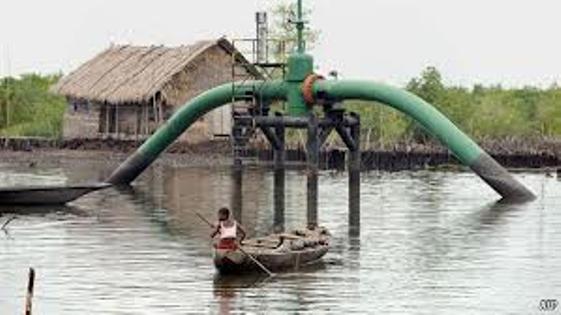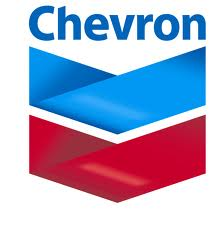COMMON QUESTIONS AND ANSWERS ON OIL AND GAS CAREERS (I)

Xfire is a graduate of one of the notable public universities in Nigeria, with working experience in the FMCG and petroleum industry. He currently works as an engineer in a multinational oil company in Nigeria. He is passionate about guiding people to achieve their dream careers, and he is known for his pragmatic approach towards career and life issues.
In furtherance of my current focus on the oil and gas industry in Nigeria, I will like to treat common questions I am often asked on job and career in the industry. I receive lots of enquiries on how to ‘make it’ into the oil and gas industry. Many people, even those that are gainfully employed often want to know what options are available for them in the oil industry with their qualifications and experience. Others are eager to know in greater detail what my experience has been so far in the industry.
I will answer the common or similar questions I am asked almost on a daily basis. I have an engineering background, thus my responses may be skewed towards the technical aspect of the industry, particularly engineering. But it will still be beneficial to all disciplines. My responses will be short and straight to-the-point. I need to add that I do not have all the answers to oil and gas careers. I can only speak from my own perspective.
-
What are the various aspects of the oil and gas industry in Nigeria?
The oil industry is made up of three aspects – upstream, midstream and downstream. Most times, both the midstream and downstream are jointly referred to as downstream. For simplicity sake, I will stick to the 2 groupings – upstream and downstream. The upstream industry deals with exploration and production of hydrocarbon (oil, natural gas, and condensate). Downstream industry deals with the processing (refining and purification) of hydrocarbon into final refined products; and the distribution, marketing and sales of these final products to end consumers.
Traditionally, people prefer to work in the upstream industry as it is more financially rewarding. The upstream industry is roughly divided into the oil producing companies and the oil servicing companies. The oil producing firms in Nigeria include but are not limited to Shell, Total, ExxonMobil, Agip, Chevron and recently Addax, Sahara Energy Field Limited, First Hydrocarbon, South Atlantic Petroleum (SAPETRO) and Seven Energy. Oil servicing firms provide technical services to oil producing firms. Several oil servicing companies, both foreign and indigenous, offer variety of services to the producing firms, depending on the availability of technical resources, capabilities, required expertise and complexity involved. Some reputable ones include but are not limited to Halliburton, Schlumberger, Baker Hughes, Ariosh, Rockson Engineering and DeltaAfrik.
Many firms are equally have stakes in the downstream sector in Nigeria. However, NNPC is the only major firm that deals with refining of crude oil in Nigeria. There are numerous lube blending plants in Nigeria owned by Oando, Total, Mobil, Eterna, MRS, Ibeto, Lubcon etc. Companies like MRS, NNPC, Oando, Mobil, Total, Conoil, etc are involved in the marketing and sales of finished petroleum products (cooking gas, petrol, diesel, engine oil, etc.).
-
Do all oil companies pay well?
Oil companies generally provide attractive remunerations and other incentives but not all oil firms pay as much as expected. It depends on the nature of the company and also the level of experience of the employees. It may also depend on each individual’s perception of what a good income is. Many indigenous oil servicing companies do not pay as much as others but may offer hands-on experience. Most reputable indigenous oil producing companies pay relatively well but generally not as well as international oil firms. Employees of multinational oil servicing firms generally earn well. Pay may also vary depending one’s experience, expertise and the risk involved in the particular job (e.g. offshore workers earn offshore allowances in addition to their regular pay due to the greater risk involved working over waters. Same with diverse and access rope technicians who earn on work -time basis).
-
How important are certifications in the oil and gas industry?
The significance of certification varies widely depending on the type of job, level of experience required and/or organization. There is no one-size-fits-all answer to that question. But I will limit my answer to entry level positions. Generally, certifications are not very important for entry level technical roles. A good degree (and possibly but not compulsorily, a Masters degree) is more important than certifications. Postgraduate degree is preferable to certifications for fresh graduate searching for core technical roles (engineering and geosciences).
Certifications become more important for non-technical roles such as accounting, HR, security, IT, safety, etc. Even then, it is not compulsory.
While I am not ruling out the importance of certifications, the oil industry worldwide generally places more emphasis on experience than certifications for mid-level roles, especially in core technical roles. Nevertheless, I always advise oil and gas professionals enroll for trainings and short term courses as they build their careers in order to further enhance their skills and competencies, and make them globally competitive
-
Why don’t oil companies in Nigeria recruit so often compared to banks?
It is funny but I am asked this question a lot of time. Oil companies recruit on as-need basis. They are in for business and do not recruit necessarily as part of their social responsibility. Many oil firms, especially the indigenous ones are not even patient enough to recruit fresh graduates. It is quite costly to train people. They prefer experienced professionals who will hit the ground running.
Many multinational oil firms have structured graduate recruitment programmes but there is currently a lull in the Nigerian oil and gas industry as most international oil companies (IOC) and their associated oil servicing firms are putting planned investments on hold due to the uncertainty surrounding the Petroleum Industry Bill (PIB). Lesser investment means fewer job creation.
It has also been observed that there is low labour turnover in most oil and gas companies as their employees hardly quit their jobs until they retire. Most of them spend their entire career working for a particular company. This invariably means that there are fewer vacancies.
-
What course or certification can I acquire that will guarantee me an oil job?
Answer is simple. There are no guarantees. However, there are some courses and certifications that place you at a better advantage than others. I will discuss that later.
-
I have often heard that oil firms, especially the IOCs do not pay pensions. Instead, they pay off their retiring employees. How true?
This is far from the truth. That’s one of the ‘myths’ associated with IOC’s which I heard long time ago before working in the oil industry. Reputable oil and gas firms in Nigeria have a well-structured and comprehensive pension system in line with Nigeria Pension Reform Act 2004 (now 2014).
- What are the most sought after disciplines in the oil industry?
Check part 2
******
For more discussions on education and careers, join our forum, HOTPROFORUM
GRAB A COPY OF JARUSHUB’S GUIDE ON CAREERS IN NIGERIA: THE ROAD TO VICTORIA ISLAND
GOT AN OIL COMPANY OR ANY OTHER COMPANY INTERVIEW? ENROL FOR JARUSHUB INTERVIEW PREPARATION PLATFORM
DON’T FORGET TO CHECK OUT JARUSHUB CV WRITING SERVICE
Subscribe to JarusHub for more career tips
[subscribe2]
Established in March 2013, JarusHub is a Nigerian information hub with focus on career and management. It is rated Nigeria's most authoritative destination for online career resources. It parades an array of Nigerian professionals who share their career experiences with a view to bridging career information gap and mentoring a generation to success. Whether you're a student, a recent graduate or an established professional, or even an executive, you will always find something to learn on JarusHub. All enquiries to jarushub@gmail.com or 0808 540 4500. Facebook: www.facebook.com/jarushub; Twitter: @jarushub or @mcjarus.
Attend JarusHub’s 2024 Seplat Assessment Center Coaching
October 29, 2024







what qtns are normally asked about oil &gas
want oil company past questions
How much old do you have required ?
oil and gas question
You have mentioned only oil and gas question but did not state any category or specific field. If you can update it little more, I can help you.
This is exactly what I was looking for & my search comes end here. Excellent info !
You have discussed over the payment provide to employee, can you explain it little more with some figures & facts.
Any one who is looking solution for Oil and Gas questions or query related to real world question can explore Oges to get solutions by oil and gas mavens.
please I need oil and gas past questions and answers on Electrical Maintenance interview pls.